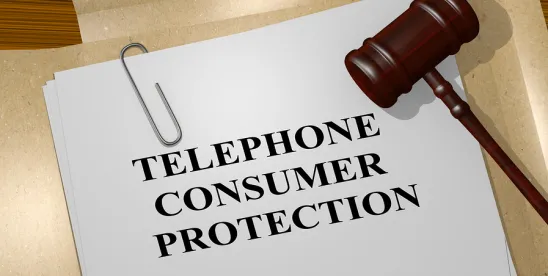Last week, in Canary v. Youngevity Int’l, Inc., 2019 U.S. Dist. LEXIS 46429 (N.D. Cal. Mar. 20, 2019), Judge Davila in the Norther District of California dismissed a complaint for failure to plead facts demonstrating that defendant Youngevity made the call at issue or was vicariously liable for it. Judge Davila’s order is instructive as it dissects, in great detail, the deficiencies in Plaintiff’s allegations.
Plaintiff alleged that Youngevity is a “network marketing business” with a “division” called “David Allen Capital” (DAC). Youngevity allegedly markets small business loans through DAC. Plaintiff alleged that he received a pre-recorded voicemail from a call that “appeared” to have been made with an ATDS. According to Plaintiff, the caller in the voicemail identified himself as “Renee with DAC.” However, Plaintiff asserted that in actuality “Renee” was an individual named Wade Cordell who was affiliated with Youngevity and made the call “acting on behalf of Youngevity.”
According to Plaintiff, the voicemail asked him to call an 800 number to leave his contact information. Calling the number allegedly directed the caller to a website, myvipfunding.com, to complete a loan application for DAC. While Plaintiff did not complete the loan application, he alleged that, had he completed the application, “he would have been directed to a DAC sales agent who would have attempted to sell him a small business loan or other service from Youngevity’s portfolio of personal and small business services.” Plaintiff also alleged that, following the submission of a loan application, Youngevity “takes over.”
First, Judge Davila concluded that the Complaint failed to sufficiently allege that Youngevity made the call at issue. The court reasoned that “[a]t most, [Plaintiff’s] allegations raise a possibility or suspicion that ‘Renee’ was a pseudonym and that the speaker [on the voicemail] was actually Cordell.” In particular, the court noted that the voicemail message only identified “Renee” and DAC, and calling the 800 number led to Cordell who identified as a “DAC client support specialist, not a Youngevity employee.” Indeed, the court observed that, based on the Complaint’s allegations, Youngevity’s involvement was “at least three steps removed” from the call itself. Moreover, even if one could infer that it was Cordell’s voice on the voicemail, the Complaint failed to allege facts supporting a plausible inference that Cordell or Youngevity dialed Plaintiff’s telephone number. Thus, the Complaint did not sufficiently allege a theory of direct liability.
Similarly, the court concluded that Plaintiff had not sufficiently pled vicarious liability based on agency, apparent authority or ratification. First, an agency theory fell short because the Complaint failed to allege actual facts supporting the conclusion that Youngevity authorized the call at issue. Instead, Plaintiff only provided the conclusory allegations that Cordell was an “authorized agent of Youngevity” and had its “actual authority” to make the call at issue. Moreover, the Complaint failed to sufficiently allege that Youngevity exercised control over the “manner and means” of the call because it did not allege: (i) that Youngevity had control over the specific content of the call; (ii) that Youngevity provided any of the instrumentalities used to make the call; or (iii) that the call came from a phone number associated with Youngevity. Further, the court took judicial notice of Youngevity’s policies, which were extensively quoted in Plaintiff’s Complaint, and observed that the policies clearly stated Youngevity’s distributors were “independent contractors” and that it “does not dictate the selling methods, specific hours, or effort levels” of its distributors. The court noted that, while Youngevity’s characterization of its relationship with distributors was not controlling, the Complaint contained no allegations to the contrary. Finally, the court rejected Plaintiffs’ contention that his allegations that Youngevity benefited from and paid commissions to DAC for loan sales alone were enough to support an inference of agency.
Next, the court concluded that the Complaint did not sufficiently allege apparent authority because it was devoid of any allegation that Plaintiff reasonably relied to his detriment on something said or done by Youngevity. Finally, the Complaint’s failure to sufficiently allege that Cordell or DAC acted or purported to act as an agent of Youngevity was fatal to a ratification theory, which only applies where an actor is acting, or purports to act, as an agent of another.
Canary is another example of the power of holding a plaintiff to his or her burden to plead actual facts in support of a TCPA claim. Plaintiff was granted leave to amend so it remains to be seen whether he can correct the deficiencies that plagued his Complaint.




 />i
/>i

